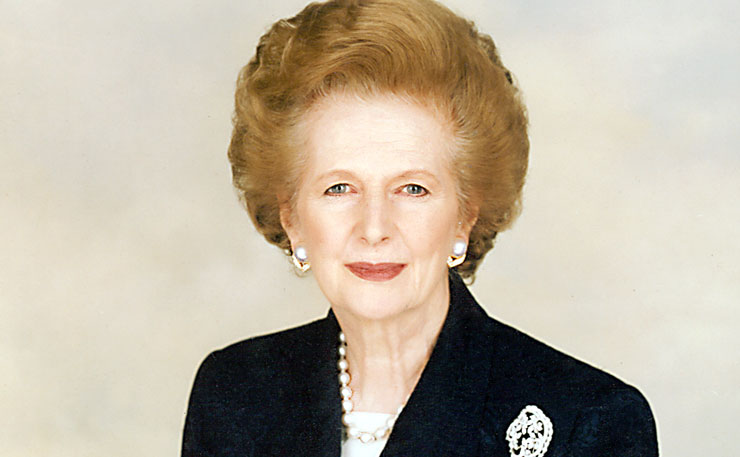Is neoliberalism in its death throes? Dr Richard Hil thinks so, based in part on the level of squawking from the parrots who promote it.
Neoliberalism is the dead parrot of our times. It’s been knocked off its perch by a combination of greed, ineptitude and public disquiet over inequality. It was meant to deliver greater prosperity for all – that at least was the official line – but ended up deepening social and economic divisions, and stoking widespread anger and resentment.
According to economists Joseph Stiglitz and Thomas Piketty, levels of economic inequality across Western countries are on par with those of a century ago. Wealth is increasingly concentrated among the rich while the poor, marginalized and most of those in work are doing it tough.
Wage stagnation, record levels of household debt, the abolition of penalty rates, underemployment, casualization etc are the hallmarks of a deeply iniquitous society. Rising energy, housing and food costs have merely added to social suffering.
Meanwhile, the beneficiaries of what US economist, Paul Krugman, refers to as “shareholder capitalism” are CEOs and, of course, shareholders.
But it hasn’t all be plain sailing. In a recent Quarterly Essay, the Australian Institute’s Richard Dennis observed that the neoliberal parrot has been killed off largely by the free marketers themselves. Gone are the days when, for them, government intervention was regarded as an anathema to free market economics – not that the market was ever really free (witness the generous subsidies handed to the fossil fuel industry, and the obscene support for the Adani mine). The Coalition government intervenes at will in the energy, finance, agriculture, education and telecommunications markets, largely in the interests of powerful corporations.

The privatization of public assets – a key plank of the neoliberal agenda – has resulted in diabolical outcomes, not least declining quality of service, labour casualisation and shonky work conditions sometimes bordering on slavery. Many of these workplaces are devoid of union membership, making workers even more vulnerable to greedy bosses.
Like everything else in the parrot cage of economic liberalisation, the mantras of cost effectiveness, workplace flexibility and increased productivity are cover for profit maximisation. As we all know, the lust for profit at any cost is most evident in the so-called finance industry where greed and sometimes criminal deception are what pass for business.
The greed of our banks has been spectacularly exposed by a Royal Commission that was, you’ll recall, resisted by the Coalition government headed at the time by an ex-merchant banker with investments in an off-shore tax haven.
Corporate self-enrichment has occurred under the watch of both Labor and Coalition governments. Despite Paul Keating’s recent declaration that neoliberalism has “run its course” it was he as treasurer, egged on by PM Bob Hawke, who presided over the privatisation of the Commonwealth Bank and the marketisation of the university system.
We now see the consequences: in the case of universities, an alarming slide in standards and the growing indebtedness of students.
So, who or what gave birth to the squawking parrot? It was conceived in a small Swiss village circa 1947 by a gaggle of economists, philosophers, billionaires and conservative ideologues. Confronted by Keynesian interventionism, these dogged advocates of the open society set a course that culminated in the ascendency of neoliberalism in the late 1970s to the present day.
It was in the post-hippy era of glam rock that we saw the election of PM Margaret Thatcher and US president Ronald Reagan. Aided and abetted by the likes of Frederick von Hayek and Milton Freidman, these anti-communist crusaders set out to create a global free market characterised by small government, deregulation and the privatisation of public assets. But this iteration of capitalism was much more than a simple economic doctrine with its origins in the 18thcentury Enlightenment.
Thatcher put it this way to The Sunday Times in 1981: “Economics are the method; the object is to change the heart and soul.” In other words, what the free marketers were after was a radical transformation in the way we thought about ourselves and our relationship with others. So, you become my competitor and the name of the game is wealth maximisation with only me and my family in mind.

“There is no such thing as society,” Thatcher once opined in a moment of breathtaking candour. It was a message so infused with interpersonal rivalry (or “competitiveness”) that few in Thatcher’s Britain escaped its pernicious influence. Ask folk in the UK what Thatcherism did to Britain and they’ll tell you: more selfishness, competition and greed, and less community, belonging and attachment.
There’s no room in the world of neoliberal capitalism for namby-pamby ideas like sharing, caring, cooperation, collaboration or community. Thatcher’s vision, extolled still by nutters on the far right of Australian politics, is neo-Darwinism on steroids, devoid of the social and immersed in the quest for wealth accumulation: “Greed is good”.
Which brings me to the goings on in our Federal parliament. We’re witnessing a lot of squawking from a flock of parrots who want to take us back to the neoliberal stone age or something like it. By the time you read this, the right-wing crazies will have ditched their leader (a closet socialist according to many in the Coalition) and installed someone much more attuned to the interests of private enterprise. The planet can go to hell as long as there are profits to be made, and if you don’t like it, well, we’ll just lock you up – that is the message coming out of Canberra.
As Noam Chomsky pointed out long ago, neoliberalism has always been at odds with democracy – you can’t have both, they simply don’t fit together. So, if the neolibs rattle on about freedom, don’t believe them.
What is to be done in the face of all this: click hereto see Australia remade, a manifesto for a decent, fairer, liveable future.
Participate in the movement to rid ourselves of neoliberalism, and please read my article: ‘Twenty things you can do to roll back neoliberal capitalism’.
Hail the progressive parrot!
Donate To New Matilda
New Matilda is a small, independent media outlet. We survive through reader contributions, and never losing a lawsuit. If you got something from this article, giving something back helps us to continue speaking truth to power. Every little bit counts.




